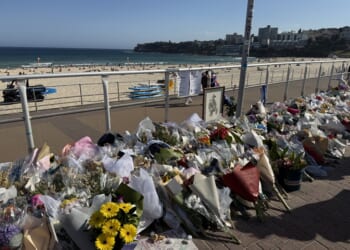Davida Ademuyiwa is an International Trade & Investment Facilitator, former councillor, a regional Ambassador for the Conservative Policy Forum, President of the Basildon & Billericay Conservative Association, and Chair of Black Tories and Friends.
It’s no longer just footage of dinghies on the evening news; it’s now in our hotels, on our streets, and in our parks. Over 50,000 people arrived by small boat since Labour took over last year, and the impact is impossible to ignore. Communities are living with the strain every day — on housing, schools, GP surgeries, policing and cohesion. Illegal immigration has moved from being a distant issue in the news to a local reality.
The Rwanda scheme — controversial though it was — would have acted, as it did briefly, as a deterrent. Labour scrapped it, crossings rose again, and the hotel bill kept climbing on the taxpayer’s tab. The public have had enough.
“Stop the boats” is necessary — but will it really do the job? Not without tackling the root causes that drive people onto those boats in the first place. These are unsettling times, and it’s time to face unsettling truths.
Much of the debate has focused on the pull factors — how attractive Britain appears to those making the journey. That matters, and yes, we must make clear that Britain is not a soft touch. But what we do not talk about nearly enough are the push factors: the instability, the economic collapse, the lack of opportunity that drive people onto boats in the first place. Too often we dismiss that as “not our problem.” But the reality proves otherwise — because the results are arriving here, in our hotels, in our neighbourhoods and in our streets.
This is not a new debate.
In the 1960s and 70s, many people from across the Commonwealth came to Britain not to settle permanently, but to train and gain skills. My own father came here, trained as a civil engineer, and worked on major projects such as the M25 before returning home to contribute to his country’s development. Many others — pharmacists, architects, lawyers — followed the same path.
Even into the 2000s, families tried to return home after years in Britain. Too often, though, the conditions they found there made it difficult and impossible for most to settle back in. With few prospects and instability around them, many ended up coming back to the UK.
Talk to people in the diaspora today, and the story is the same: most would rather live in their own countries, close to family and culture, if only the conditions made that possible.
These push factors are not new either.
For decades, Britain has poured money into alleviating them through aid, and yet the problems remain. Aid has its place in a crisis, but it is firefighting, not fixing. It cannot build the kind of long-term stability that keeps people in their own countries. That is why the answer cannot be more aid, but a new approach — one that backs trade, investment, and opportunity instead.
The pendulum swinging away from aid must not leave a vacuum, otherwise those 50,000 illegal immigrants will serve only as a taste of what is to come. We must make a switch to trade and investment. This is where Britain can make a difference — and where our own interests are served.
We have expertise and systems that work: from law and finance, to infrastructure and education. We have built them, tested them, and proven them here at home. These are things we can export, sell, and share with other nations.
That is not charity. It is partnership. It creates jobs and stability abroad while opening new markets and long-term opportunities for Britain. It is the difference between writing aid cheques that








![Keith Ellison Caught Promising to Fight State Agencies for Somali Fraudsters [WATCH]](https://www.right2024.com/wp-content/uploads/2026/01/Keith-Ellison-Caught-Promising-to-Fight-State-Agencies-for-Somali-350x250.jpg)

![Florida Officer Shot Twice in the Face During Service Call; Suspect Killed [WATCH]](https://www.right2024.com/wp-content/uploads/2025/12/Inmate-Escapes-Atlanta-Hospital-After-Suicide-Attempt-Steals-SUV-Handgun-350x250.jpg)





